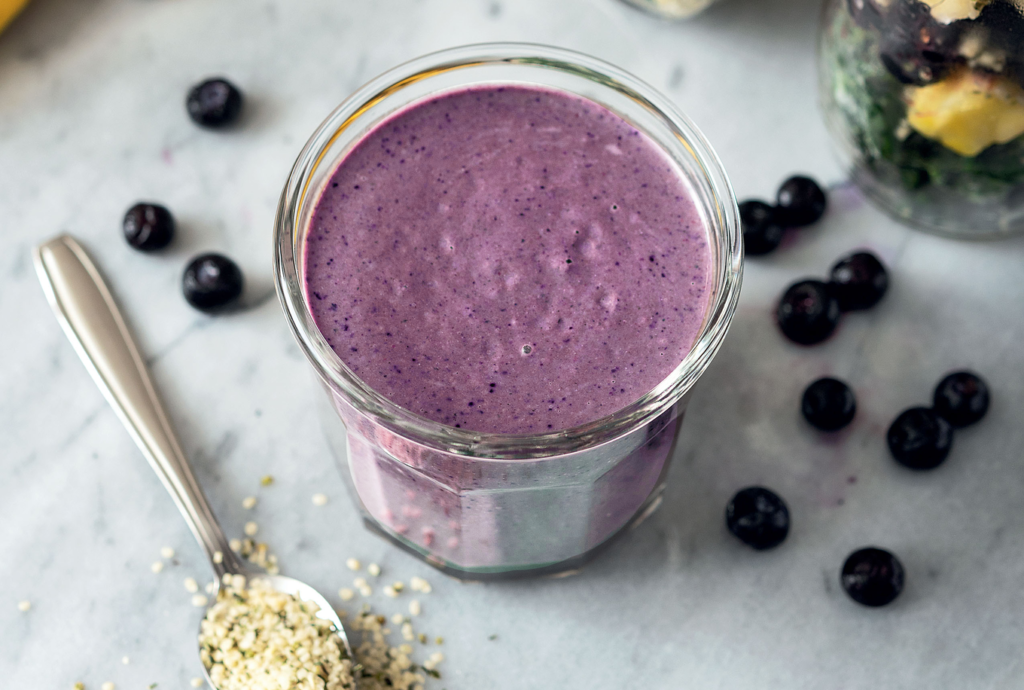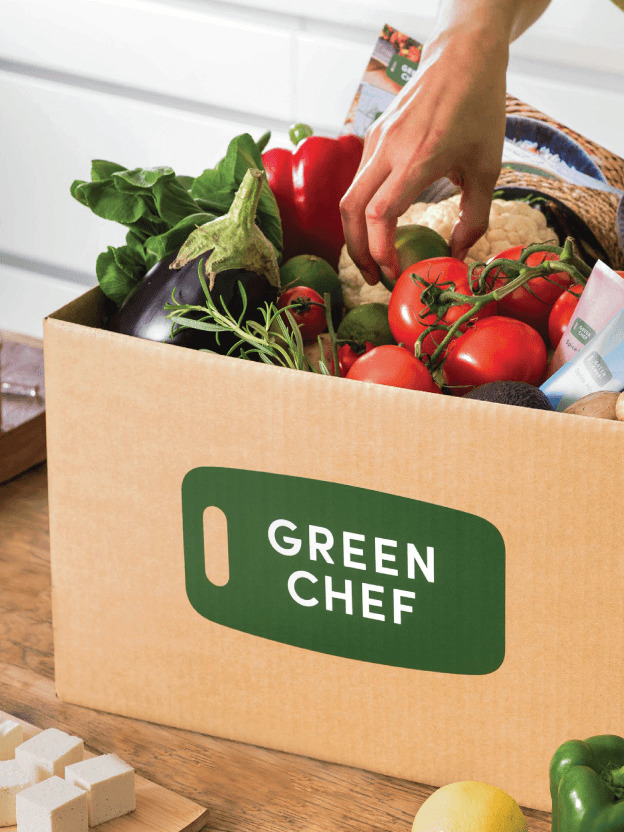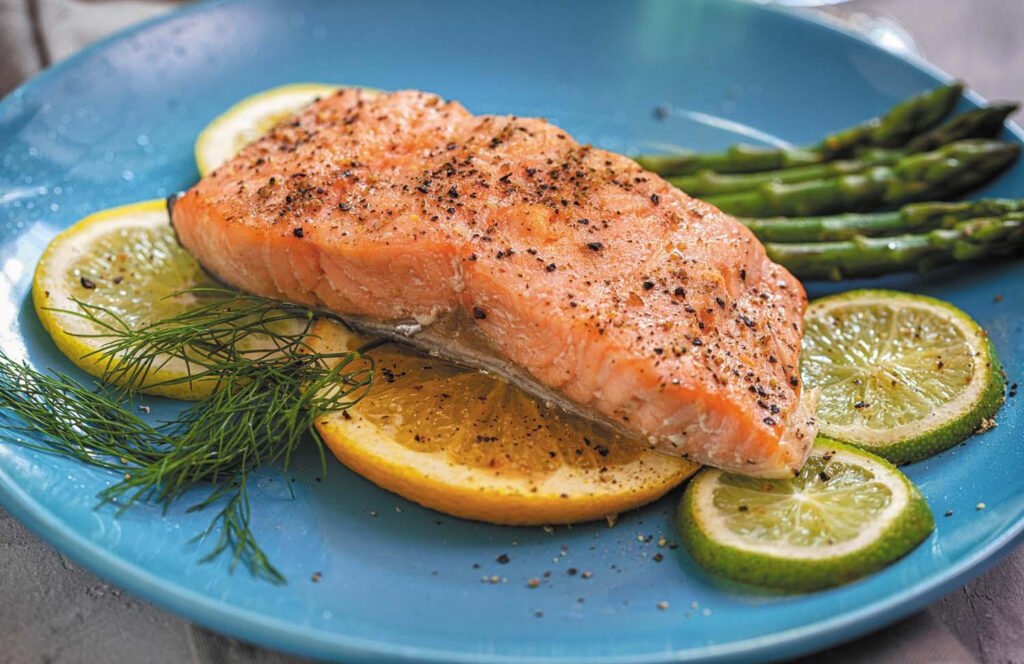Eating three balanced meals per day is often touted as the healthiest way to maintain a healthy diet and get adequate nutrition. But if you’re like me and have an unpredictable eating pattern, getting three meals in each day can be tough. I love to snack throughout the day, I don’t like putting effort into cooking and I even skip meals until I’m so hangry I can barely think straight. I know that I’m not alone in struggling to make the three meals a day lifestyle work for me.
According to the National Health and Nutrition Examination Survey, the proportion of people consuming three meals a day declined significantly from the 1970s to 2010 (73% to 59% in men and 75% to 63% in women). I’d venture to guess those numbers have gone down even more in the 12 years since that survey, as stress and burnout has reached a fever pitch in recent years.
This made me wonder how important is it to have frequent meals? Why aren’t two meals (or the popular OMAD) safe? And why is it so hard to eat three meals a day? I talked to a nutrition expert and dove into the research to find out. Here’s how my own eating habits have transformed for the better.
Three meals a day: An origin story
Though we now take it for granted, the division of your daily diet into three meals — breakfast, lunch and dinner — hasn’t always been the standard, and it still isn’t in some places in the world. Before industrialization, as New York University food historian Amy Bentley told The Atlantic, people in the US tended to eat just two large meals, fueling their bodies for rural, outdoor labor. In ancient Rome, the custom was to eat one large meal, plus two small, light meals.
In the US, our eating habits are now typically organized around our workdays or school days. But cultural norms aside, there’s no scientific reason for you to eat exactly three meals every day.
“The number of meals in a day itself isn’t key,” said Marissa Kai Miluk, a registered dietitian nutritionist who specializes in stopping binge eating. “Every person is different and there is research on all ends of the spectrum of how many times a day you ‘should’ be eating.”
Over the years, there have been studies that show benefits to eating more frequent meals, as well as studies that show the downsides of it. Some research has also found benefits to eating less frequent, bigger meals and — you guessed it — the downsides of it.
With that said, the three-meals-a-day recommendation didn’t come out of nowhere. In one sense, it all comes down to math: The average adult human requires 2,000 calories per day, and you’re only awake for so many hours. “Across all peer-reviewed research and health practices, three meals a day is a general recommendation to encourage consistent, adequate energy intake,” Miluk said. “Unless someone is seriously lacking in time or safe access to food, I would not recommend eating less than three meals a day, as that would require a large intake in one sitting in order to meet basic needs,” she added.
Still, the math can change depending on your own health needs and schedule, not to mention a ton of other, less quantifiable factors — like, in my case, a love for snacks.
More important than the number of meals, Miluk said, is consistency. Skipping meals, waiting all day to eat and other inconsistent eating patterns can have a range of unintended outcomes, from increased blood pressure to high or low blood sugar.
So how do you know if your eating patterns are healthy?
“Experiencing frequent mood swings, hanger, erratic cravings, insatiable hunger, eating with a sense of urgency and binges are common signs that you may need to reevaluate your eating patterns and relationship with food,” Miluk explained.
But eating regular meals is, somehow, so much harder than it seems, at least for people like me.
Why eating three meals a day is so hard
Sometimes the choice to veer away from the three-meals-a-day schedule is just that — a choice. But even if you’d love to eat a proper breakfast, lunch and dinner every day, it can be challenging. You can’t always control when you get a moment to sit down and eat, or what food options are available. Mental health and stress can also affect appetite.
Let’s call a spade a spade: Eating is work. Preparing a meal takes physical and mental labor, in addition to time and money. Even the process of figuring out what to eat can feel like an insurmountable obstacle when you have a million other things on your mind. And that’s before you account for diet culture, which makes meal times even more fraught and stressful by equating thinness to health, and health to a moral virtue. (If your goal is simply weight loss, meal timing and frequency involves a whole other type of math.)
There’s a lot of pressure to eat the “right” number and type of meals and cook them all ourselves, using fresh, whole ingredients. On a budget. While working and taking care of loved ones. Easier said than done.
Sometimes it’s more convenient to… not do all that, and just reach for a snack instead. While the number of people eating three meals a day has gone down over the past several decades, people are eating more calories overall; we’re just getting more of those calories from snacks now.
In some countries, it’s relatively easy to access nutritious food — and this is key — that you don’t have to cook yourself. Local foodways in Mexico and Ghana, for example, make it easy to walk down the road and get a cheap, fully prepared (and delicious) meal made with local protein and produce, or a bundle of fresh local fruit. Not so in many places in the US.
Still, the idea that you should cook all your meals yourself at home is a relatively recent phenomenon. In the past, only families that had space for a home kitchen and the means to hire help ate home-cooked meals every day. In cities, working-class people ate cooked food from small eateries and street vendors. Communal eating is also a treasured tradition in many cultures, both in the US and across the globe.
Three meals a day isn’t some magic number; it’s just a benchmark to help ensure you’re eating enough consistently — and modern life in this country makes it extremely difficult. So what can you do about it?
3 tips for eating 3 meals
First things first: Accept that struggling to cook three meals at home every day is not a personal failing. But you don’t necessarily have to wait for sweeping society-wide changes to relieve some of the frustration. Here are some tips that helped me, and might help you, too.
1. Go back to basics
As you know by now, three meals a day is not a golden rule. But if you’re struggling to eat regular meals at all, Miluk told me she usually advises her clients to prioritize eating three meals a day first and foremost.
“When your body doesn’t trust that food will be consistently available, it goes into fight-or-flight mode,” she explained. A daily meal schedule provides a “solid foundation” that allows you to rebuild trust in your body and reregulate your appetite.
That’s not to say it’ll be smooth sailing. I’m used to skipping lunch by accident or postponing dinner for way too long, and that didn’t just go away. But having a clear goal in mind was incredibly helpful. Every time I was able to successfully eat breakfast, lunch and dinner, I learned what it felt like to enjoy life with consistent energy instead of brain fog and hangriness.
2. Practice nonjudgment
Over the years, I’ve tried a lot of different ways to outsmart myself and get my three meals in. But I can’t truly say that I was able to succeed until I finally gave up on trying to always eat the “right” foods, the “right” way. Instead, I focused on what was realistic and convenient for me: How could I get the nutrients that I need, while taking all the barriers in my life into account?
By removing any judgment about what your three meals consist of, you may be more likely to actually eat them. For me, that meant adding a meal subscription and meal shakes to my daily routine. For others, it might mean grocery delivery, help with meal prep from your community, canned or prepared foods, food trucks or cheap easy produce (like bananas).
Focusing not only on health, but on ease — even when it meant eating stuff that I felt like I “shouldn’t” eat — changed everything for me. With each day, I remind myself that I’m worth all the money and the effort that it takes to feed myself. I forgive myself for living in a culture and era that doesn’t make nourishing my body easy, and I commit to caring for myself in whatever ways I have to despite that.
3. Check in with yourself
After you’ve gotten comfortable with eating three meals a day, according to Miluk, you can focus on tuning into your own body’s signals and using the hunger-fullness scale to maintain an eating schedule that works best for you. That means taking into account your food preferences, health needs and values, schedule and accessibility. A professional dietitian can help guide you along this journey, but remember that there is no one-size-fits-all prescription for when or what to eat.
“The key to knowing the optimal meal timing for yourself is tuning out the world around you and getting honest with yourself,” said Miluk.
Her recommendation for figuring that out is to ask yourself the following questions:
- How do I feel when I eat breakfast, lunch and dinner consistently versus when I skip a meal?
- Do my meals and/or snacks sustain me until my next meal or snack?
- When I go long periods of time without a substantial meal or snack, do I notice any changes in my focus, energy or mood?
- Do I pay attention to signs from my body for when I am hungry and when I am full?
- Are there any patterns to my appetite that stand out? Does my appetite stay stable throughout the day or do I find I eat more at certain times of the day?
For me, it turns out that eating three meals a day is actually the most feasible way to reach my daily needs while working a 9-to-5 job. Given how often I get hungry and how much I like to eat in one sitting, that’s just what makes sense. You might decide that living your best life means eating two ginormous meals as farmers used to, or snacking from morning to night. “Some may consider themselves ‘grazers’ and there’s nothing wrong with that,” Miluk assured me.
“This is why trusting and tuning into one’s own body is more important than any diet rule or handbook on health,” she said. “A scientific study could say that eating 12 times a day is the best for longevity, but who does that realistically apply to?”







